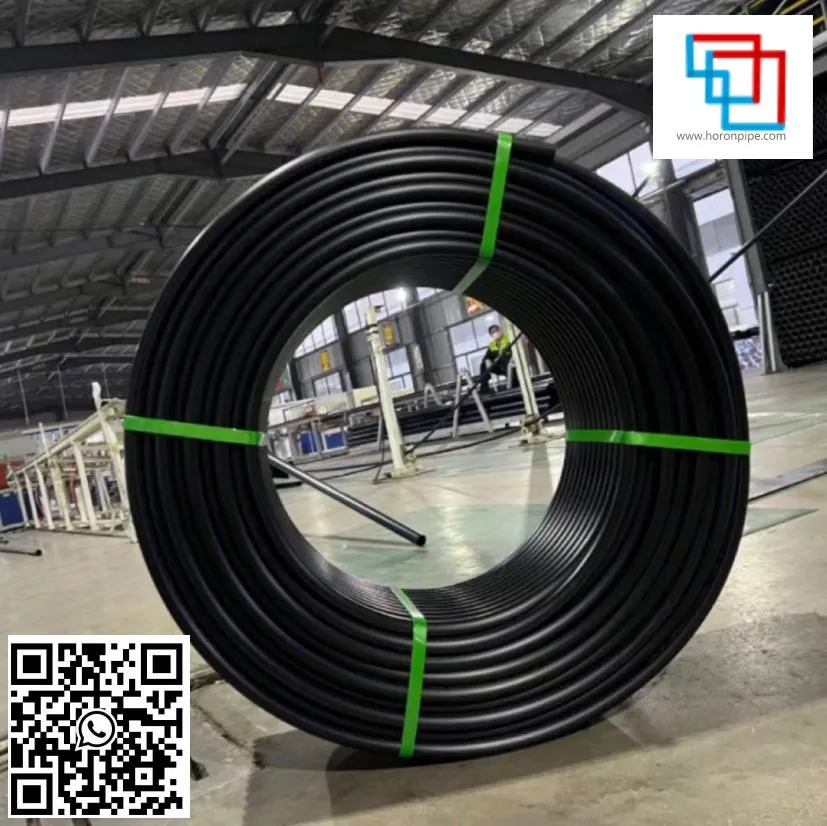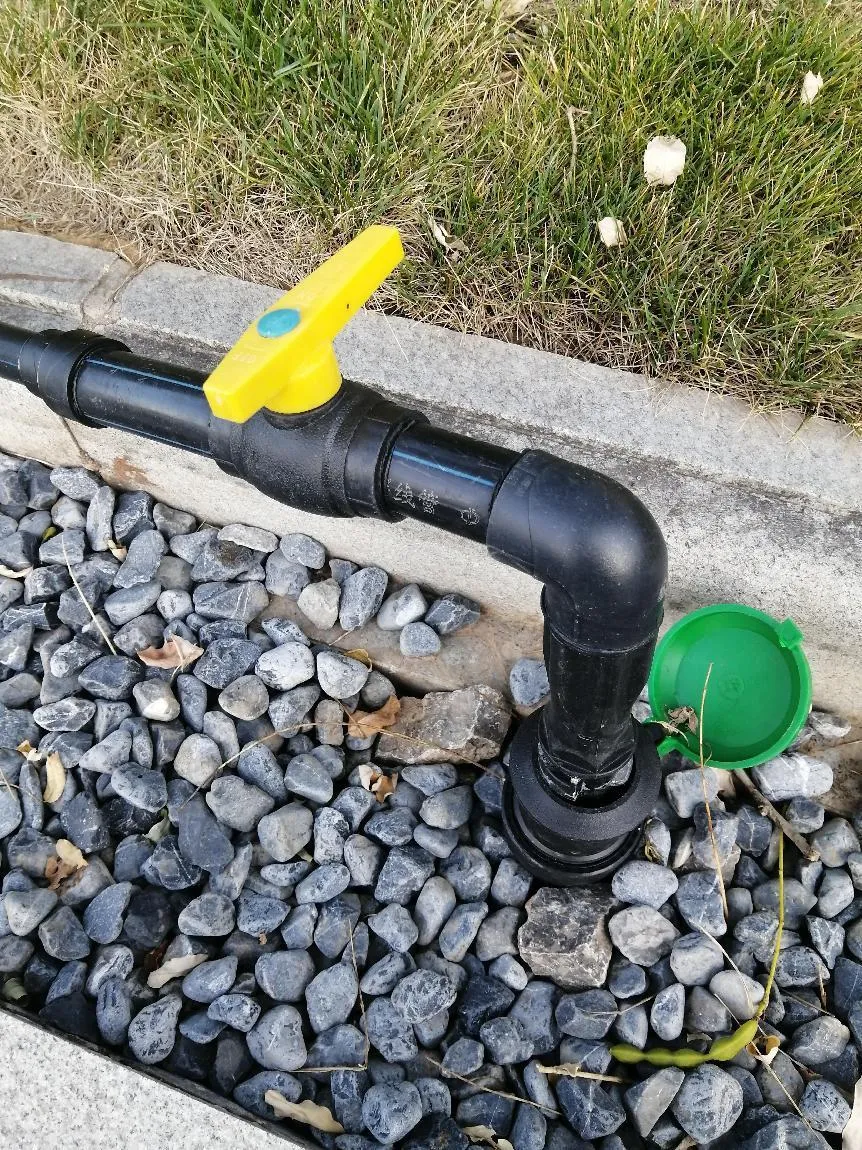Nov . 06, 2024 09:55 Back to list
The Role of HDPE Pipes in Modern Water Supply Systems
High-Density Polyethylene (HDPE) pipes have become an integral part of modern water supply systems. Known for their durability, flexibility, and environmental benefits, HDPE pipes are increasingly being used to replace traditional materials like steel, iron, and concrete. As water infrastructure continues to evolve to meet the demands of growing populations and changing environmental conditions, HDPE pipes play a crucial role in ensuring efficient, reliable, and sustainable water distribution.

Durability and Longevity of HDPE Pipes
One of the key reasons HDPE pipes for potable water are favored in modern water supply systems is their exceptional durability and longevity. Unlike traditional materials, HDPE pipes are resistant to corrosion, chemical damage, and physical wear and tear. This makes them ideal for transporting water, which often contains minerals, chemicals, and other substances that can corrode or degrade other types of pipes over time.
The flexibility of HDPE pipes also contributes to their durability. They can withstand ground movements, temperature fluctuations, and pressure changes without cracking or breaking. This resilience is particularly important in areas prone to earthquakes or extreme weather conditions, where the integrity of water supply systems must be maintained. With a lifespan that can exceed 50 years, HDPE pipes significantly reduce the need for frequent repairs and replacements, ensuring a long-term, reliable water supply.
Leak Prevention and Water Conservation With HDPE Pipes
In water supply systems, preventing leaks is critical for conserving water resources and maintaining system efficiency. HDPE water service pipe are joined using heat fusion, a process that creates a seamless, watertight bond between pipe sections. This method virtually eliminates the risk of leaks, which is a common issue with pipes made from other materials that rely on mechanical joints or fittings.
Leak prevention not only conserves water but also helps maintain water pressure throughout the distribution system. Consistent water pressure is essential for delivering water to all users, especially in urban areas with high demand. By reducing the occurrence of leaks, HDPE pipes contribute to more efficient water use, lower operational costs, and a more sustainable water supply system.
Adaptability to Various Water Supply Needs About HDPE Pipes
HDPE pipes are highly adaptable, making them suitable for a wide range of water supply applications. They are used in potable water distribution, wastewater treatment, irrigation systems, and industrial water supply. This versatility stems from HDPE's resistance to a wide range of chemicals and its ability to transport both potable and non-potable water safely.
In addition to their chemical resistance, HDPE pipes are available in various sizes and pressure ratings, allowing them to be tailored to specific water supply needs. Whether it's a large-scale municipal water distribution network or a small community water system, HDPE pipes can be customized to meet the demands of the project. This adaptability ensures that HDPE pipes can be used effectively in both new installations and retrofitting existing systems.
Environmental Impact and Sustainability of HDPE Pipes
Sustainability is a growing concern in modern infrastructure projects, and HDPE pipes offer significant environmental benefits. The production of HDPE pipes requires less energy compared to traditional materials like steel or concrete, resulting in a lower carbon footprint. Additionally, HDPE pipes are 100% recyclable, meaning they can be repurposed at the end of their service life, reducing waste and conserving resources.
HDPE pipes also contribute to environmental sustainability by reducing the risk of contamination in water supply systems. Their seamless construction prevents contaminants from entering the water supply, ensuring that the water remains clean and safe for consumption. This is particularly important in regions where water quality is a concern and where contamination could have severe public health implications.

Ease of Installation and Maintenance About HDPE Pipes
The lightweight nature of HDPE pipes makes them easier and more cost-effective to transport and install than traditional materials. This ease of installation is particularly beneficial in remote or difficult-to-access areas, where transporting and installing heavy pipes can be challenging and expensive. The flexibility of HDPE pipes also allows for easier routing around obstacles, reducing the need for extensive excavation and minimizing disruption to the surrounding environment.
Maintenance is another area where HDPE pipes excel. Their resistance to corrosion and chemical damage means they require less frequent maintenance, which translates to lower operating costs over the long term. When maintenance is necessary, the durability of HDPE pipes often means that repairs are simpler and less disruptive compared to repairs on pipes made from more rigid materials.
Supporting Resilient Water Infrastructure About HDPE Pipes
As climate change and population growth place increasing pressure on water supply systems, the need for resilient infrastructure has never been greater. HDPE pipes are well-suited to meet these challenges due to their strength, flexibility, and adaptability. They can withstand the stresses associated with changing environmental conditions, such as increased rainfall, flooding, or drought, helping to ensure a reliable water supply even in the face of these challenges.
Moreover, HDPE pipes can be installed using trenchless technology, a method that involves minimal digging and disruption to the surface. This approach not only reduces the environmental impact of construction projects but also shortens project timelines and lowers costs. By supporting the development of resilient, sustainable water infrastructure, HDPE pipes are helping to ensure that communities have access to safe and reliable water supplies well into the future.
HORON INTERNATIONAL-Your Reliable Construction Plastic Pipes Manufacturer
Construction plastic pipes play a vital role in many of industrial fields. Only by purchasing from trustworthy manufacturers can the quality and precision be guaranteed. HORON INTERNATIONAL is a leading manufacturer of construction plastic pipes in China, With many years of industry experience and excellent reputation, is able to be come your reliable supplier. Contact us now to get more information.
-
Unveiling the Magic of PVC Irrigation Pipe
NewsJun.11,2025
-
Unlock Pipe Perfection with PPR Plumbing
NewsJun.11,2025
-
Unleashing the Hidden Potential of HDPE Tubing
NewsJun.11,2025
-
The New Frontier of PPR Plumbing Fittings Innovation
NewsJun.11,2025
-
Revolutionizing with PVC Tubing's Hidden Powers
NewsJun.11,2025
-
Advantages of HDPE Pipe in Potable Water Systems
NewsJun.11,2025

